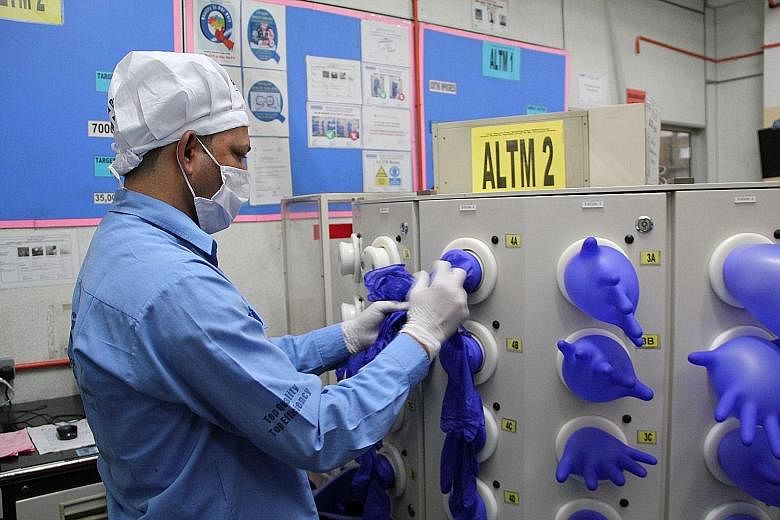The coronavirus pandemic has sparked renewed investment interest in the healthcare sector across the world.
Healthcare is regarded as a necessity, regardless of the economic climate. The sector is also underpinned by long-term secular growth drivers in the developed world, including Singapore, such as ageing populations.
But as the Covid-19 outbreak puts both lives and livelihoods in acute danger, investments are flowing more towards companies that would benefit from the rising demand for tests, infection control and patient monitoring.
Globally and in Singapore, investors are focusing on companies involved in the pharmaceutical, medical device and supplies and biotechnology value chain.
For instance, backed by the spike in demand for medical supplies such as gloves and gowns, the stock price of Singapore-listed Medtecs International has surged about 408 per cent so far this year.
UG Healthcare has risen 154 per cent and Top Glove 114 per cent in the same period.
Biolidics, the only medical equipment maker listed here that is involved in the development of Covid-19 test kits, has risen 82 per cent year to date.
This is an impressive outperformance by the medical device and supplies segment against the broader market.
The Straits Times Index is down about 21 per cent this year.
Global lockdowns have hit companies that draw the bulk of their revenue from elective medical procedures and medical tourism.
"Private healthcare service providers, such as hospitals and medical centres, would be partially impacted by Covid-19 following travel and movement restrictions," said DBS Bank analyst Rachel Tan.
Still, as Singapore plans to ease some of its circuit breaker measures next month, some healthcare facilities and service companies have been riding a wave of rebound since late March.
Investors are betting on patients opting to get treatments they had earlier decided to defer as restrictions ease. Healthcare screening and imaging service provider AsiaMedic, for example, is up about 140 per cent since March 23, when most markets around the world marked their lowest levels this year.
Ms Tan said some private hospital operators have been on the front line in the fight against the outbreak - providing services to the Government by taking in Covid-19 patients who are recovering to ease the load on public hospitals.
They are also contributing manpower to test foreign workers at the workers' dormitories and for temperature testing at the airport.
Ms Carmen Lee, head of OCBC Investment Research, said that as the healthcare sector is very diversified, ranging from pharmaceuticals to medical supplies, the firms' respective roles and contributions will vary within the present situation.
"Companies that are producing testing kits will likely see higher demand for their products," she said.
Medical technology is the fastest-growing segment in healthcare, according to global consultancy McKinsey & Company.
In the Asia-Pacific region alone, the medical technology market is expected to reach US$133 billion (S$190 billion) from just US$88 billion in 2015. That would make it the second-largest market globally after the United States.
UOB Asset Management (UOBAM), which manages the United Global Healthcare Fund, said it favours companies that will be beneficiaries of increasing demand for testing, infection control and patient monitoring.
While hospital systems are facing revenue and margin pressures because of the lockdowns, UOBAM believes that beyond the current crisis, the longer-term prospects of healthcare service providers are intact.
A United Nations study in 2017 showed that the global population aged 60 or above is expected to double to nearly 2.1 billion by 2050.
An ageing population is therefore a powerful, sustainable demographic trend, which will result in increased healthcare consumption, according to UOBAM.



